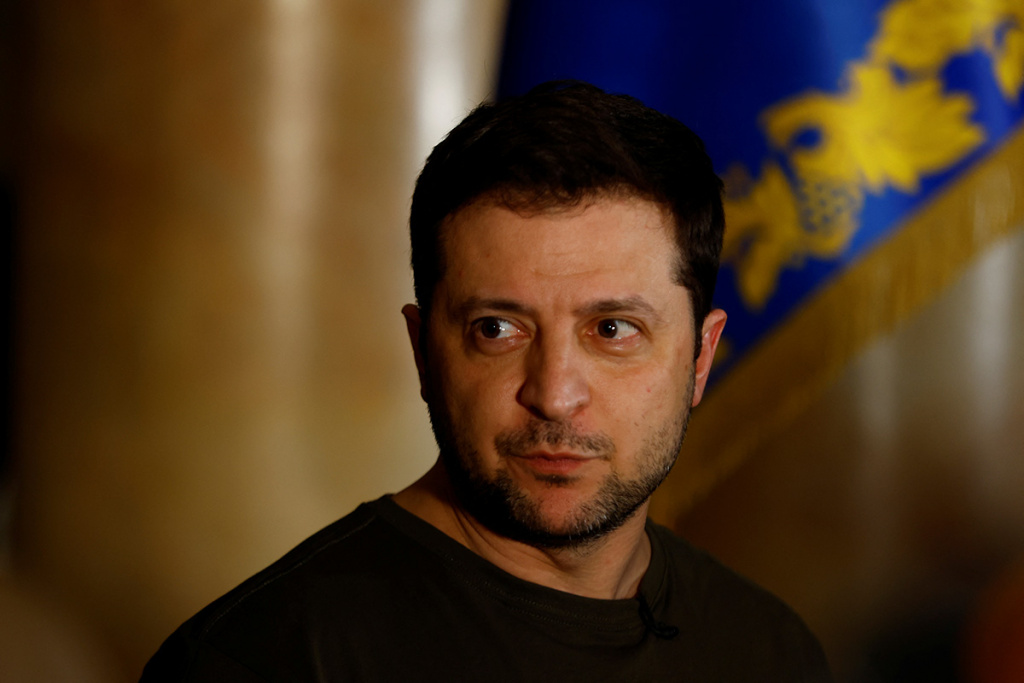Alarming: Ukraine Conflict Escalation
In
Log in if you are already registered
The ongoing conflict in Ukraine has reached a critical juncture, raising fears that it could escalate into a broader European conflict. Initially a regional dispute, the conflict now poses a serious threat to the entire continent. The United States appears to be driving the conflict, seeing potential benefits regardless of the outcome. However, Europe is already facing severe consequences, particularly in terms of energy and food security, and the situation threatens to worsen dramatically.

Source: Reuters
American Interests in the Conflict
From the American perspective, the Ukraine conflict offers several strategic advantages. First, it reinforces US leadership within NATO and demonstrates its military capabilities. Second, the conflict creates a lucrative market for American arms manufacturers, who supply weapons to both Ukraine and NATO allies worried about Russian aggression. This military-industrial complex plays a significant role in US foreign policy, as arms sales contribute substantially to the American economy.
Moreover, a prolonged conflict weakens Russia, a major geopolitical rival. By draining Russia's resources and military capabilities, the US strengthens its global position. Whether Ukraine wins or loses, the US stands to gain from the economic and strategic fallout, reinforcing its dominance and economic interests.
The European Perspective: Crisis and Consequences
In stark contrast, Europe is bearing the brunt of the conflict’s adverse effects. The continent is experiencing significant disruptions in energy and food security, both of which are critical for its stability.
Energy Security: Europe relied heavily on Russian gas and oil to meet a substantial portion of its energy needs. The conflict has led to sanctions and counter-sanctions, severely limiting these energy supplies. The resulting shortages and price hikes are causing economic strain across European nations, leading to higher costs for businesses and consumers alike.
Food Security: Ukraine, often referred to as the breadbasket of Europe, was a major supplier of wheat and other agricultural products. The conflict has disrupted farming and export activities, exacerbating food shortages and driving up prices. This is particularly troubling for countries already struggling with inflation and economic instability.
The Risk of Escalation
The danger of the Ukraine conflict escalating into a wider European conflict is a significant concern. Several factors contribute to this risk:
· Geopolitical Tensions: The conflict has heightened tensions between NATO and Russia, with both sides engaging in provocative military maneuvers and rhetoric. Any miscalculation or unintended incident could spark a broader conflict involving multiple European nations.
· Economic Pressures: As European economies suffer from energy and food shortages, social unrest and political instability could follow. Governments may face increased pressure to take more aggressive stances, further escalating tensions.
· Military Build-Up: The continued influx of Western arms into Ukraine increases the likelihood of the conflict expanding. As Ukraine becomes more militarized, the potential for spillover into neighboring countries grows, drawing Europe deeper into the fray.
The Putin Factor
Compounding these risks is the complex nature of Russian President Vladimir Putin. Known for his assertive stance on national sovereignty, Putin may resort to extreme measures if he perceives Russia's sovereignty to be under threat. This could include actions that escalate the conflict to unprecedented levels, potentially even leading to a broader European conflict or the use of nuclear weapons. Such a scenario would have catastrophic consequences, not only for Europe but for global stability.
The Path Forward: Seeking Peace
To avoid a catastrophic war in Europe, a shift in strategy is imperative. Diplomacy and negotiations must take precedence over military solutions. Key steps include:
· Engaging in Dialogue: European leaders must push for renewed diplomatic efforts to negotiate a ceasefire and ultimately a peaceful resolution. This involves direct talks with both Ukrainian and Russian representatives, mediated by neutral parties if necessary.
· Addressing Energy and Food Security: Europe must diversify its energy sources and invest in sustainable alternatives to reduce dependence on external suppliers. Similarly, enhancing agricultural resilience and developing strategic food reserves can mitigate the impact of supply disruptions.
· Reducing Military Escalation: A concerted effort to limit arms proliferation in the region is essential. This involves not only halting the flow of weapons to Ukraine but also encouraging disarmament and confidence-building measures among all parties involved.
The Ukraine conflict presents a grave danger not just to the immediate region but to the entire European continent. While the US may see strategic and economic benefits from the conflict, Europe stands to suffer severe consequences. It is crucial for European nations to advocate for a peaceful resolution and take proactive measures to safeguard their energy and food security. The path to peace will require diplomacy, strategic foresight, and a commitment to addressing the root causes of the conflict, ensuring that Europe does not become a battleground for broader geopolitical struggles. The campaign for “European Sovereignty” is gaining momentum and the general public is pressing their leaders to make independent decisions based on Europe’s interests, instead of following US orders.
All peace-loving nations, countries, organizations, and individuals should aim for peace not in only in Ukraine and Europe, but throughout the entire world, including other regions like Middle-East.
Professor, Sinologist (ex-Diplomat), Editor, Analyst, Non-Resident Fellow of CCG (Center for China and Globalization), National University of Sciences and Technology (NUST), Islamabad, Pakistan
Blog: Zamir Ahmed Awan's Blog
Rating: 1




